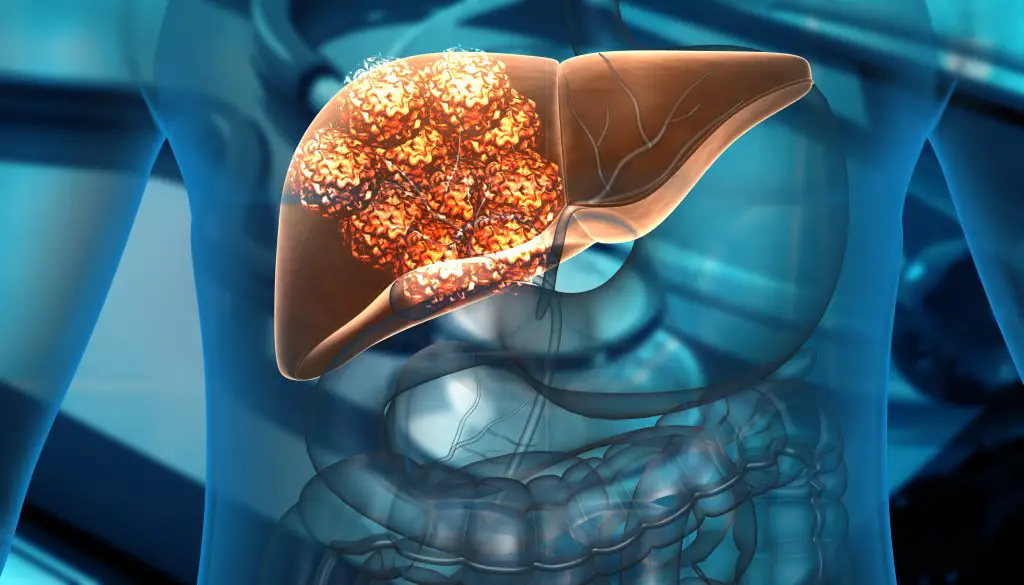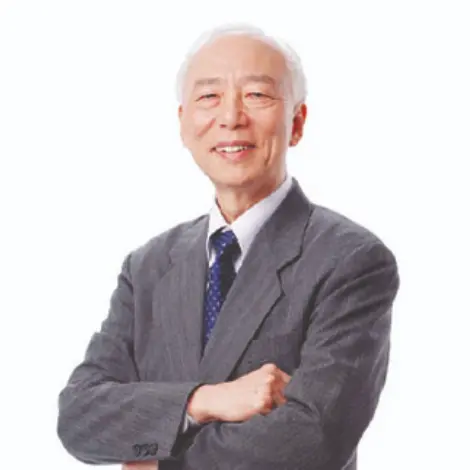Categories
Hot Insights
See All-


Studies Find Mushrooms Can Reduce Cancer Risks | Best Cancer-Fighting Foods
How can mushrooms reduce cancer risks? Mushrooms are more than just a tasty addition to your meals. They are nutritional powerhouses that provide essential vitamins, minerals, and antioxidants. Additionally, mushrooms contain compounds like polysaccharides and beta-glucans, which can have great medicinal properties, such as fighting cancer (2). Several types of mushrooms have been studied for […]
-


Best Diet for Prediabetes: Best Foods to Eat and Foods to Avoid
What is prediabetes? Prediabetes is a condition where blood sugar levels are higher than normal but not high enough to be diagnosed as type 2 diabetes (2). In this condition, the body’s cells become resistant to insulin, a hormone that regulates blood sugar levels. Consequently, this leads to an imbalance in blood sugar levels. Normal […]
-


New Screening Tool May Improve Liver Cancer Survival Rates up to 90%: Study Finds
What is hepatocellular carcinoma (HCC)? Hepatocellular carcinoma (HCC) is the most common type of cancer that comes from the liver. It occurs when the liver cells (called hepatocytes) grow uncontrollably and create a tumor. HCC is a serious condition that often develops in people with chronic liver disease, such as cirrhosis, hepatitis B or C […]
-


Does Nicotine Raise Blood Pressure? Explore The Link, Prevention Strategies, and More
Does smoking cause high blood pressure? In the short term, yes. Every time you smoke, it causes a temporary increase in blood pressure (1). Blood pressure increases when blood has difficulty traveling through the blood vessels. In simple terms, it’s like you’re in a tunnel with a lot of people, and you need to make […]
-


Back Pain After Sleep: Causes, Chiropractic Care, and Other Remedies
Back hurts after sleeping: Common causes Poor sleep habits and an unsupportive sleep environment are common culprits behind back pain after sleep (5, 6). However, underlying medical conditions like arthritis, disc herniation, and fibromyalgia can contribute to the condition. Here’s a look at the common causes. Poor sleeping position Sleeping on your stomach can force […]
Video Series
See All-



Fact Check — Kidney Misinformation Seen by Millions
-


Half the World Eats Rice Toxins Daily That Damage Kidneys
-


See How Spinach Can Damage Your Kidneys
-


Avoid These 7 Plant-Based Foods That Can Damage Your Kidneys
-


These 7 Daily Habits Can Help Lower Your Creatinine Levels | Improve Kidney Health
-



9 Skin Signs That May Indicate Your Kidneys Are Damaged
-


Surprise! Drinking Water Wrongly Can Damage Your Kidneys
-


9 Fruits to Lower Creatinine Levels and Improve Kidney Health
-


Top 9 Drinks To Help Stop Proteinuria and Heal Your Kidneys
Advisory Board
Learn more-


Jordan Stachel, MS, RDN
NutritionistJordan is most fulfilled when guiding others towards making stepwise, sustainable changes that add up to big results over time. Jordan works with a wide variety of individuals, ranging in age from children to the elderly, with an assortment of concerns and clinical conditions. She helps individuals optimize overall health and/or manage disease states using personalized medical nutrition therapy techniques. It can be difficult for individuals to navigate health conditions and to discern between nutrition information that is both credible and accurate, versus misinformation and conflicting guidance. As an expert in the field, Jordan finds great fulfillment in filling this gap by providing detailed clarification and explanation by leading the discussion surrounding nutrition and wellness. Jordan looks forward to continuing to help others achieve the healthiest version of themselves, improve longevity, and be a dependable source and voice within the field of nutrition and dietetics.
-


Lauren Ann Teeter, CNS, LCSW
Certified Nutrition Specialist (CNS) Licensed Clinician (LCSW) Mindfulness, Biofeedback, Integrative & Functional Medicine Functional & Integrative Approach To Mental Health, Functional Nutrition, Functional & Integrative Medicine, Psychotherapy, Mental HealthLauren is a functional nutritionist and licensed therapist who takes an integrative and functional approach to mental health and overall wellness. Lauren has worked as a clinician, researcher, and writer in mental health and functional nutrition. Lauren takes a root cause approach to wellness— looking at the body, mind, and responses to our environment. Lauren is passionate about empowering others to become their own expert and advocate in terms of optimizing their health and well-being. Lauren has worked with those with various health conditions including digestive, metabolic, hormonal and mental health. Lauren has worked in outpatient and inpatient settings.
-


Sheridan Genrich, CGP, NP
Clinical Nutritionist, Naturopath & IridologistSheridan is a degree-qualified clinical nutritionist, naturopath & health coach who specializes in mood & digestive disorders, particularly food-related sensitivities. A certified FitGenes practitioner (nutrigenomics - interpretation of how personalised nutrition & lifestyle interventions impact genes). Also trained in Vitae Mosaic, naturopathic functional medicine. Through comprehensive anlaysis of the symptoms, timeline health history, iris assessment and functional lab results (among other tests), she can piece together the root cause of the problem, so you can gain control over your health & live with your true potential. Her local & online practice is grounded in cutting edge research on gut-brain nutritional science. Since completing a health science degree in complimentary medicine 8yrs ago, Sheridan has continued to deepen her research & use of bio-individual nutrition, herbs and the latest in functional medicine testing. This has seen significant improvements in the quality of life for her clients. Even those with long-standing chronic conditions experience rapid relief, when the biochemical imbalances or 'triggers of dysfunction' are corrected. She is a co-author on mental health of the Amazon best selling book: "Rapid Change: For Busy Heart Centered Women Who Want To Be The Best Version of Themselves"
-


Fetimah Khan, MD
MDDr. Fatimah Khan has a good knowledge of her field and very well medical content writing expertise. She is a competent doctor and the author of hundreds of medical articles.
-


Preet Pal Singh Bhinder, MD
MD and FID (Fellowship in Diabetes, Royal Liverpool Academy) Diabetes SpecialistPreet Pal Singh Bhinder is a physician (M.D. Medicine) with specialization in diabetes (Fellowship in diabetes, Royal Liverpool Academy). He has a particular interest in metabolic disorders.
-
Jennie Stanford, MD, FAAFP, DipABOM
Physician (MD), Fellow of the American Academy of Family Physicians, and a Diplomate of the American Board of Obesity Medicine.Dr. Jennie Stanford, MD, FAAFP, DipABOM is a double-board certified physician who values both evidence-based medicine and providing trusted medical information. She is a distinguished Fellow of the American Academy of Family Physicians, and a Diplomate of the American Board of Obesity Medicine. She has 13 years of experience in nutrition and 8 years of experience in medicine.
-


Dr. Hu Naiwen
Professor, the Nine Star University of Health Sciences in Sunnyvale, California Integrated medicineDr. Hu Naiwen is a highly skilled and experienced practitioner in both Western and traditional Chinese medicine. He began his academic journey studying biology at university before specializing in neuroscience and endocrinology during graduate school. Upon completing his studies, Dr. Hu worked in the field of pharmacology and conducted life science research at the prestigious Stanford Research Institute International. Upon returning to Taiwan, Dr. Hu expanded his expertise by delving into the ancient practice of acupuncture and studying the theories of Chinese medicine. This exploration led him to earn a license in traditional Chinese medicine, further enriching his understanding of healthcare and treatment methodologies. Dr. Hu's personal quest for better health led him to explore various schools of qigong, ultimately discovering Falun Gong in his late 40s. This practice not only improved his physical well-being but also enhanced his mental acuity, allowing him to better comprehend and analyze complex medical texts. Throughout his more than 30 years of medical practice, Dr. Hu Naiwen has come to appreciate the strong connection between the cultivation of one's mind and the cultivation of one's life, as well as the relationship between morality and health. By incorporating these principles into his practice, he has helped over 140,000 patients overcome a myriad of illnesses, solidifying his reputation as a dedicated and holistic healthcare professional.
-


Yu-Hsin Liang, MD
ECFMG Certification, Medical Licensure in Taiwan, Clinical Training at National Taiwan University Hospital Graduate Student in Harvard T.H. Chan School of Public HealthYu-Hsin Liang is currently a current graduate student at the Harvard T.H. Chan School of Public Health. He received his medical education at the National Taiwan University (NTU) College of Medicine, during which he co-developed a hospital-granted surgical model and a winning integrative web model of machine learning and electronic medical records. Yu-Hsin Liang obtained his physician license in Taiwan in 2022.
-


Christopher Gardner, PhD
Professor (Research), Medicine - Stanford Prevention Research Center NutritionFor the past 20 years most of my research has been focused on investigating the potential health benefits of various dietary components or food patterns, which have been explored in the context of randomized controlled trials in free-living adult populations. Some of the interventions have involved vegetarian diets, soy foods and soy food components, garlic, omega-3 fats/fish oil/flax oil, antioxidants, Ginkgo biloba, and popular weight loss diets. These trials have ranged in duration from 8 weeks to a year, with study outcomes that have included weight, blood lipids and lipoproteins, inflammatory markers, glucose, insulin, blood pressure and body composition. Most of these trials have been NIH-funded. The most recent of these was an NIH funded weight loss diet study - DIETFITS (Diet Intervention Examining The Factors Interacting with Treatment Success) that involved randomizing 609 generally healthy, overweight/obese adults for one year to either a Healthy Low-Fat or a Healthy Low-Carb diet. The main findings were published in JAMA in 2018, and many secondary and exploratory analyses are in progress testing and generating follow-up hypotheses. In the past few years the long-term interests of my research group have shifted to include two additional areas of inquiry. One of these is Stealth Nutrition. The central hypothesis driving this is that in order for more effective and impactful dietary improvements to be realized, public health professionals need to consider adding non-health related approaches to their strategies toolbox. Examples would be the connections between food and 1) global warming and climate change, 2) animal rights and welfare, and 3) human labor abuses (e.g., slaughterhouses, agriculture fields, fast food restaurants). An example of my ongoing research in this area is a summer Food and Farm Camp run in collaboration with the Santa Clara Unified School District since 2011. Every year ~125 kids between the ages of 5-14 years come for 1-week summer camp sessions led by Stanford undergraduates and an Education Director to tend, harvest, chop, cook, and eat vegetables...and play because it is summer camp! The objective is to study the factors influencing the behaviors and preferences that lead to maximizing vegetable consumption in kids. A second area of interest and inquiry is institutional food. Universities, worksites, hospitals, and schools order and serve a lot of food, every day. If the choices offered are healthier, the consumption behaviors will be healthier. A key factor to success in institutional food is to make the food options "unapologetically delicious" a term I borrow from Greg Drescher, a colleague and friend at the Culinary Institute of America (the other CIA). Chefs are trained to make great tasting food, and chefs in institutional food settings can be part of the solution to improving eating behaviors. In 2015 I helped to initiate a Stanford-CIA collaboration that now involves dozens of universities that have agreed to collectively use their dining halls as living laboratories to study ways to maximize the synergy of taste, health and environmental sustainability. If universities, worksites, hospitals and schools change the foods they serve, they will change the foods they order, and that kind of institutional demand can change agricultural practices - a systems-level approach to achieving healthier dietary behaviors. My long-term vision in this area is to help create a world-class Stanford Food Systems Initiative and build on the idea that Stanford is uniquely positioned geographically, culturally, and academically, to address national and global crises in the areas of obesity and diabetes that are directly related to our broken food systems.